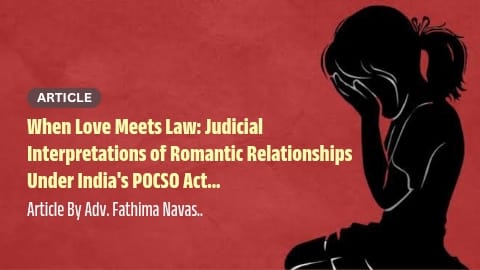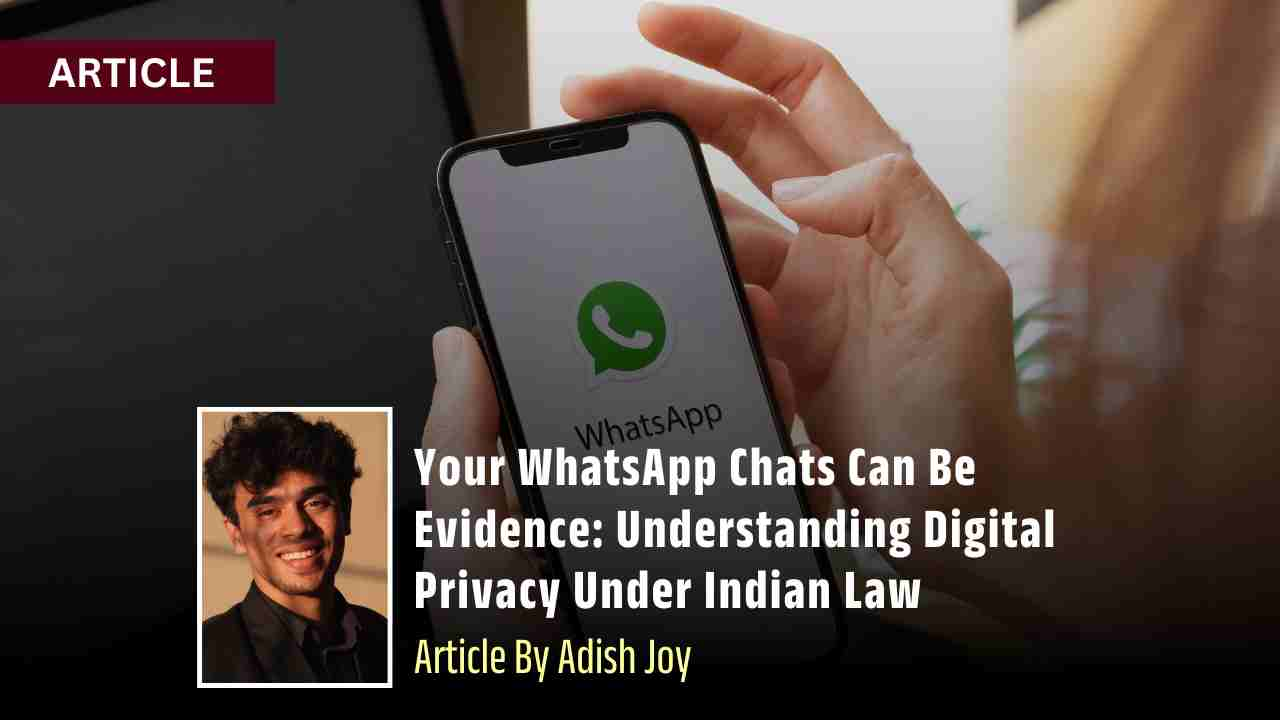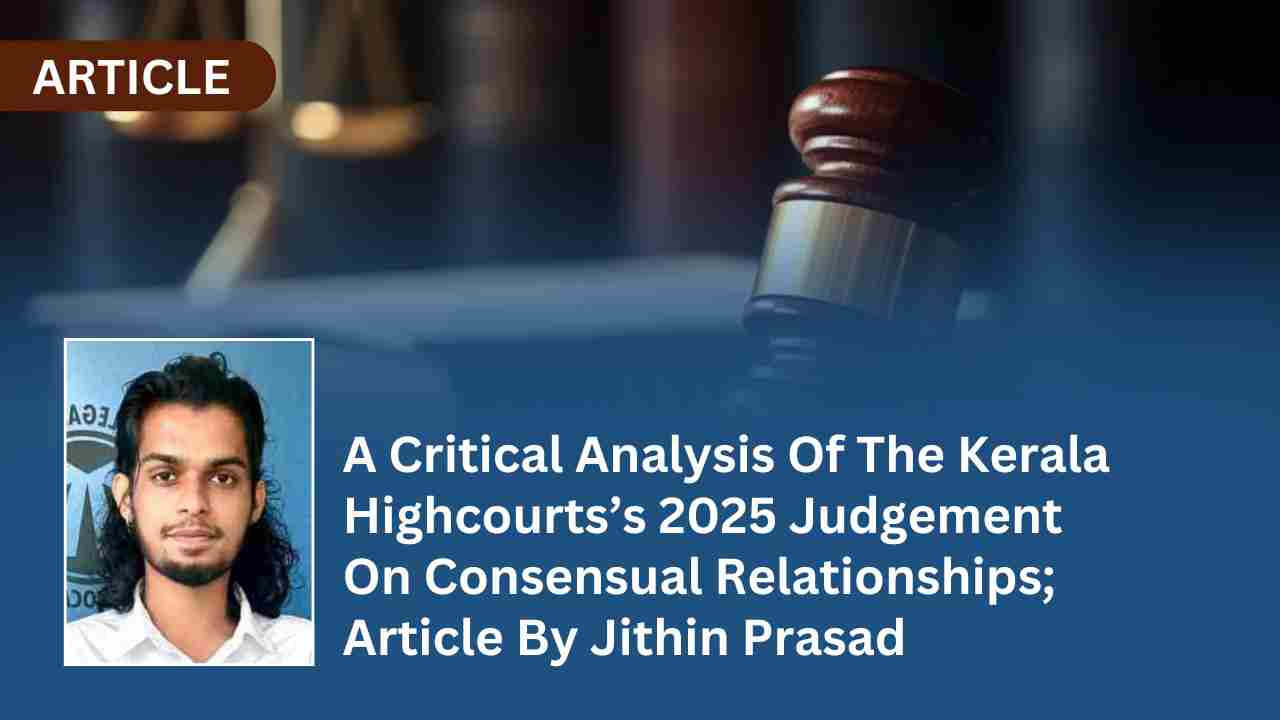Introduction
The Protection of Children from Sexual Offences Act (POCSO) of 2012 was passed with the aim of safeguarding children from sexual exploitation and abuse. But the harsh provisions of the Act have proved to be challenging to handle while handling consensual teen romantic relationships. This article examines how Indian courts have handled this challenging situation, where safeguarding minors sometimes contradicts the very nature of teen relationships.
POCSO Act: Purpose and Implementation
The POCSO Act also defines a child as any person below 18 years of age and criminalizes all sexual activity between or with children regardless of consent. The act has severe punishment ranging from a minimum of seven years of imprisonment to life imprisonment based on what the crime is.
POCSO was enacted primarily to safeguard children against sexual offenders, but its extensive use has inadvertently criminalized consensual sex between teenagers or between young adults and teenagers slightly below the age of consent.
Court Decisions: Notable Rulings
Vijaylakshmi v. State Rep. (2021)
In this historic case, the Madras High Court observed criminalizing romantic affairs among young people was not the objective of the law with POCSO. Justice N. Anand Venkatesh stated:
“The legislature has lagged behind the shifting social trends. Cases arising out of the interaction between adolescents or young adults have to be handled differently from cases of sexual exploitation of children below the age of 18.”
The court suggested the Act be changed to differentiate between actual cases of abuse and where the abuse is connected to romantic relationships.
Sabari v. Police Inspector (2019)
The Madras High Court balanced this question again in a case involving a 19-year-old boy and a 17-year-old girl who eloped with one another. The court stated:
“The intent of the POCSO Act was never to make a teenager boy who has a relationship with a minor girl a criminal.”
The court hinted at revisiting the age of consent to address such problems.
Sonu @ Subham Kumar v. State of Uttar Pradesh (2021)
The Allahabad High Court released on bail a person accused under POCSO since it noted that the case involved a love affair. The court noted:
“Where the victim is a consenting party and where the victim and the accused are either in a relationship or claim to have married each other, the courts have been indulgent in such a case.”
Independent Thought v. Union of India (2017)
This Supreme Court decision was on child marriage but impacts POCSA cases on intimate relationships too. The court struck down the marital rape exception in the case of a wife aged between 15 and 18 years old, affirming that 18 is the age of consent regardless of whether one is married or not.
Dharmaraj v. State (2023)
The Supreme Court closely scrutinized relationships between juveniles that are consensual. The court said:
“The strict rules of the POCSO Act, along with the growing number of romantic cases, will have big effects on the future of young people. We need to find a balance between what the law says and what it really means.”
The “Romeo-Juliet Clause” Controversy Some High Courts have suggested additions to provide for what individuals refer to as a “Romeo-Juliet clause.” This exception would provide for exceptions to consensual relationships of adolescents or between an adolescent and an adult wherein the difference in age is negligible.
The Reformative Approach
Courts are now using a reformative approach in romantic relationship cases.
- Considerations for Bail: Courts typically grant bail when it appears that both parties agree and the age discrepancy is minor.
- Lenient Sentencing: Judges have been handing down sentences which are on the lower side of what is possible when the individual is convicted.
- Marriage as Mitigation: Where the couple married after the girl had reached majority age, courts have occasionally held this as a mitigating factor.
- Case Withdrawal: In some cases, courts have accepted withdrawal of the cases where there evidently exist consented relationships.
Areas of Concern
Despite the evolving judicial approach, several concerns persist:
- Forced Reporting: POCSO makes reporting of all sexual offenses against children compulsory, and this has resulted in consensual relationships being criminalized.
- False Cases: At times, parents opposed to intercaste or interfaith marriages have abused the law.
- Teen Impact: Adolescents experience severe emotional anguish when their relationships are criminalized.
- Gender Bias: The law imposes more on boys than on girls since boys tend to be prosecuted.
Legislative Considerations
The judiciary’s remarks have initiated discussions regarding potential amendments to the POCSO Act:
- Age-Proximity Exception: This is referring to creating regulations for cases when the age difference between individuals is minimal.
- Gradation of Offenses: Differentiating between predatory sexual assault and consensual relationships.
- Judicial Discretion: Granting more flexibility to judges to sentence convicted offenders for consensual relationships.
Conclusion
As Indian society evolves, the judiciary has shown a nuanced understanding of the complexities surrounding adolescent relationships. While the protection of children remains paramount, courts have increasingly recognized that the blanket criminalization of romantic relationships between young individuals was never the intent of the POCSO Act.
The path forward requires legislative intervention that balances the protection of children with the reality of adolescent development and relationships. Until such amendments are made, the judiciary continues to navigate this delicate balance through thoughtful interpretation of the law, striving to ensure that justice is served without unduly penalizing young love.
Article By
Adv. Fathima Navas




